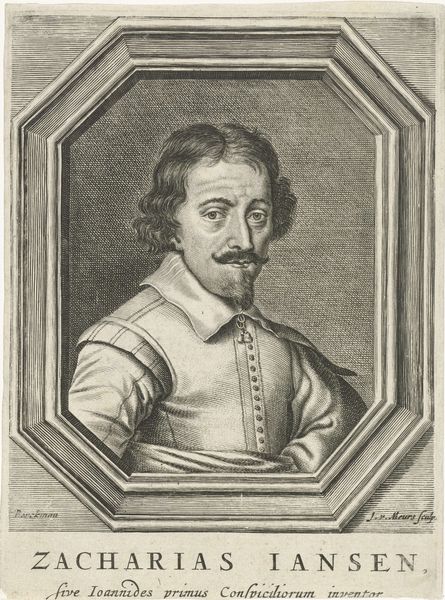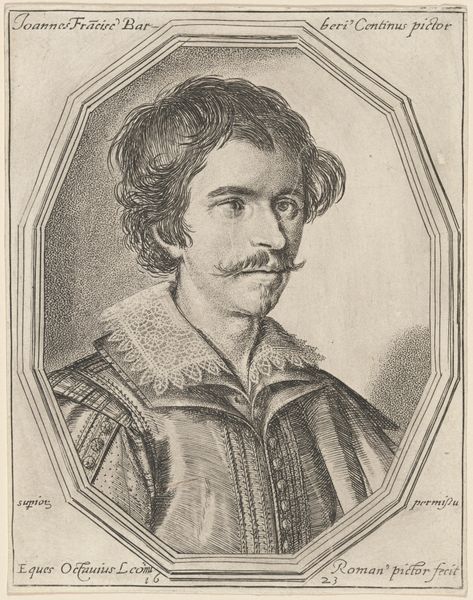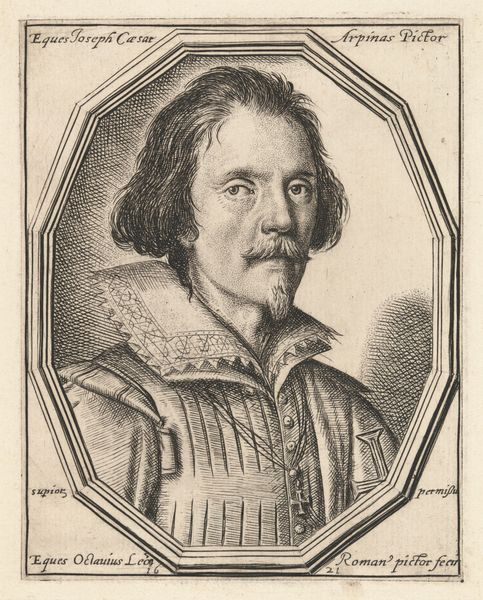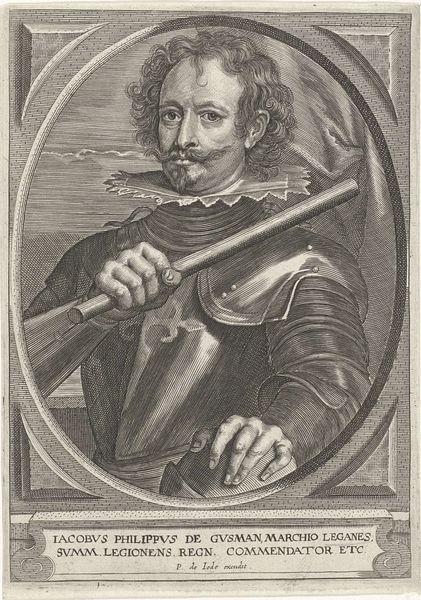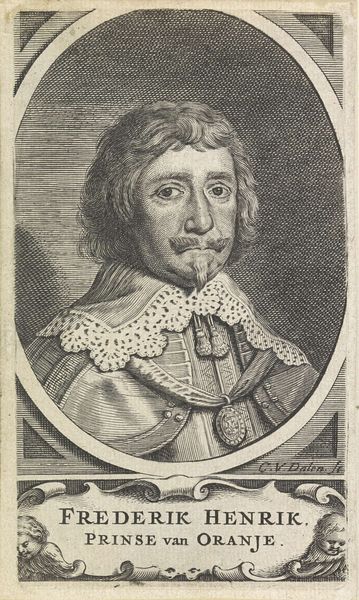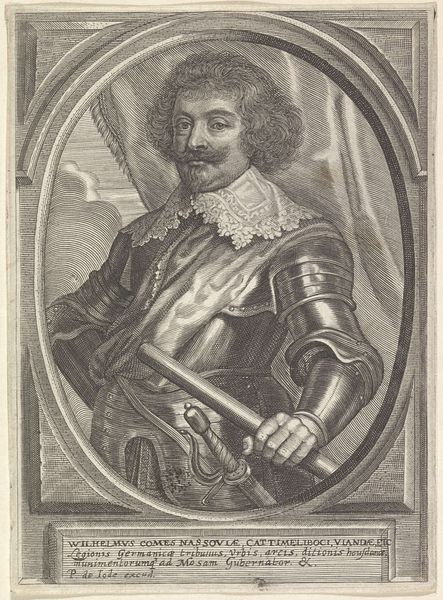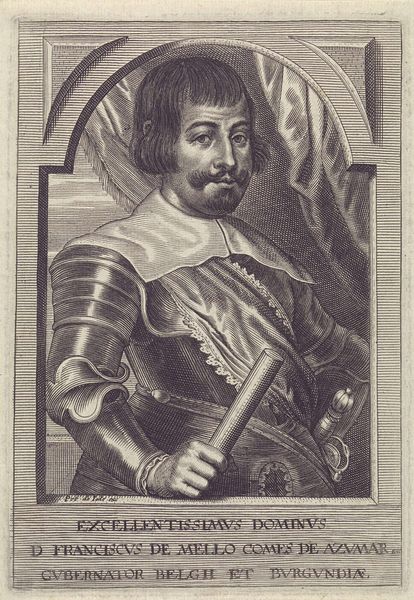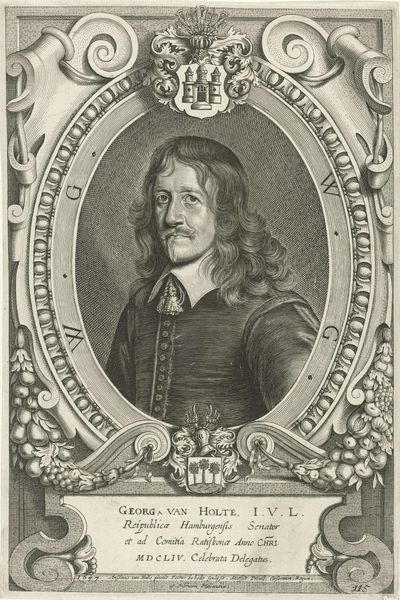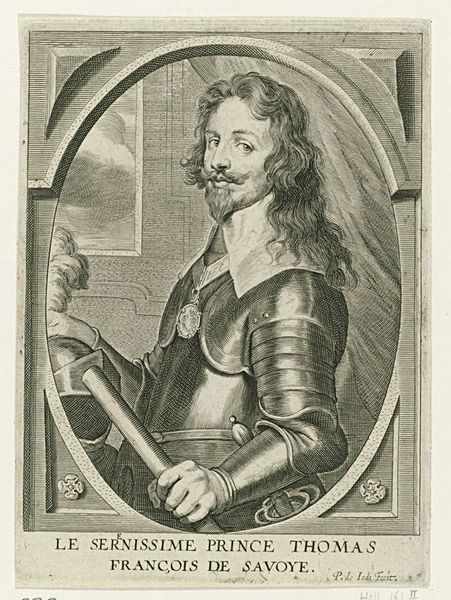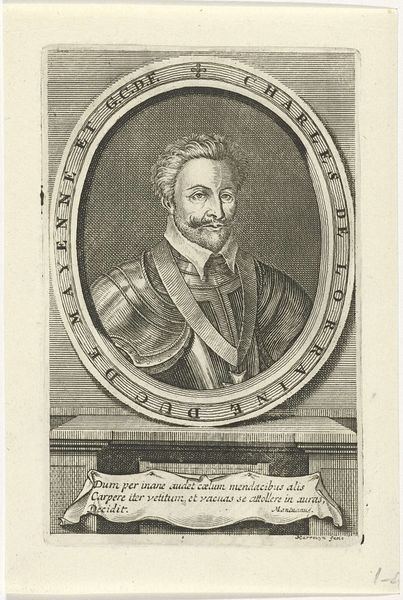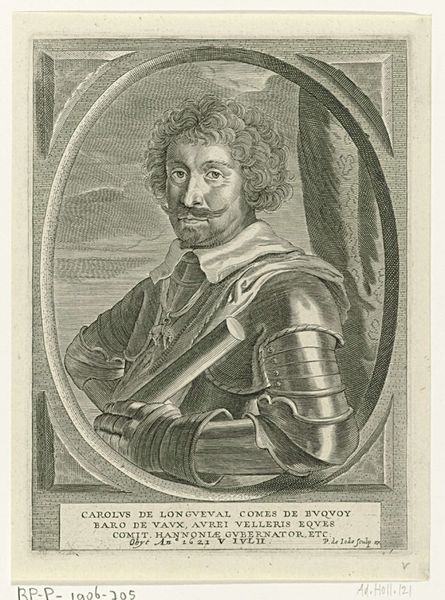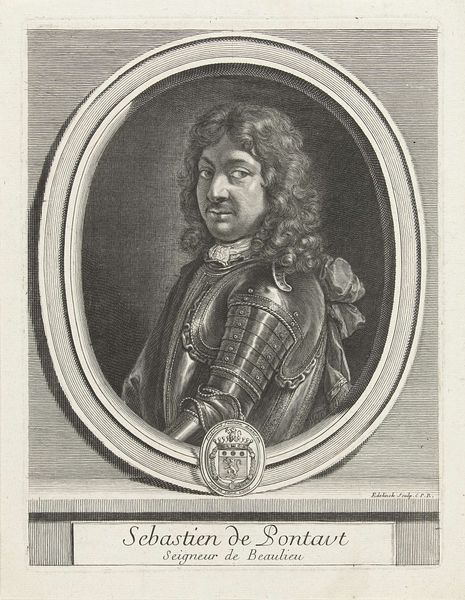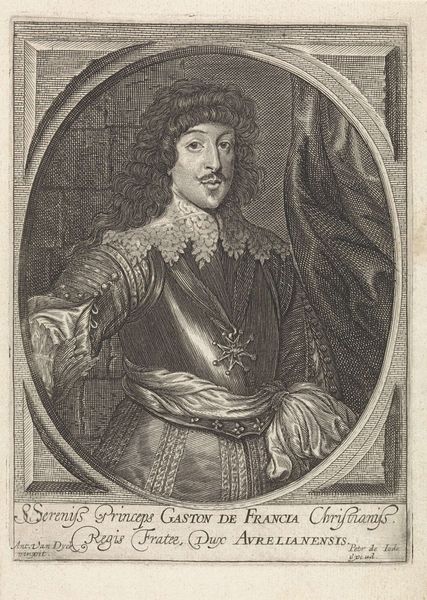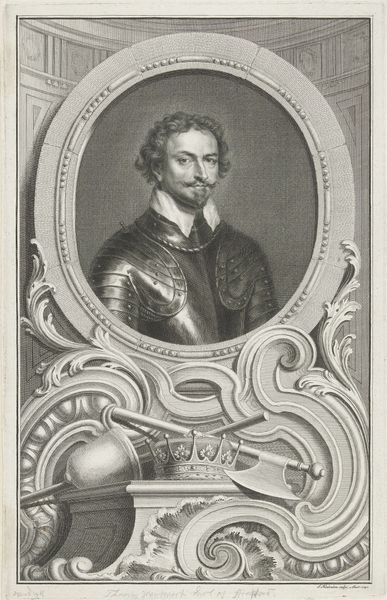
print, engraving
#
portrait
#
baroque
# print
#
old engraving style
#
traditional media
#
caricature
#
history-painting
#
engraving
Dimensions: height 177 mm, width 120 mm
Copyright: Rijks Museum: Open Domain
Editor: Here we have "Portrait of Thomas Wentworth, 1st Earl of Strafford," created sometime between 1628 and 1670 by Pieter de Jode II. It’s an engraving, so a print. The detail in the armor is impressive. What strikes you about this piece? Curator: It's fascinating to consider this engraving within the context of its production. Engravings like this served a crucial function. They were reproducible images that circulated ideas and promoted specific images of power. Notice how the materiality of the print itself is key. It democratized access to images of the elite. How does the choice of engraving as a medium inform your understanding of the sitter’s status and the artist's role? Editor: That’s a great point, I hadn't considered the power dynamic inherent in the reproduction. So the print makes him appear more important than a painting would. How does it compare to more traditional depictions of the time? Curator: Well, traditionally, portraiture was exclusive to the wealthy. But through the medium of engraving, his image becomes accessible to a much wider audience. This speaks to the burgeoning print culture of the 17th century and its impact on disseminating political and social ideals. What’s also relevant is the labor: Jode II likely didn’t design it, but engraved based on another artist’s portrait, potentially van Dyck’s. What does it mean for one artist to make a work reproducing the vision of another? Editor: Interesting... So the material, the print, and how it's made are actually as important as who is depicted. Curator: Precisely. And thinking about the role of the engraver, as a kind of technician reproducing someone else’s art. It highlights the broader social and economic networks within which art was created and consumed. This isn't just about aesthetic appreciation, it's about understanding the social life of things. Editor: I will never see a portrait the same way again! Thanks. Curator: A fresh look is all that's needed. Glad I could help.
Comments
No comments
Be the first to comment and join the conversation on the ultimate creative platform.
